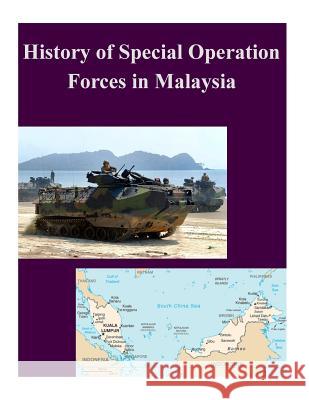History of Special Operation Forces in Malaysia » książka
History of Special Operation Forces in Malaysia
ISBN-13: 9781502958181 / Angielski / Miękka / 2014 / 164 str.
From 1941 to 1990, Malaysia was involved in violent conflicts against internal and external threats. Most military literature does not emphasize the role of Special Operations Forces (SOF) during these five decades of conflicts. This book highlights some lessons learned that might be useful for countries with strategic and operational concerns similar to Malaysia, details the contributions of the SOF to Malaysia from World War II to the present, and examines their utility in supporting future Malaysian national security strategy. The research also outlines the development and a way forward for Malaysian SOF. The author explores each conflict using the UK Defense Line of Development, which consists of training, equipment, personnel, information, doctrine, organization, infrastructure, and logistics (TEPID OIL). It is equivalent to the U.S. DoD's doctrine, organization, training and education, materiel, leadership, people and facilities (DOTMLPF), for the set of generic elements that have to be brought together to generate a defense capability. Due to the importance of leadership in a conflict, the author adds "Leadership" to the UK DLoD. The new acronym, for the purpose of this book, is TEPID OIL + L. In short, this book proposes that fostering SOF benefits not only irregular warfare capabilities against internal threats, but also overall national security against external conventional and unconventional threats.











